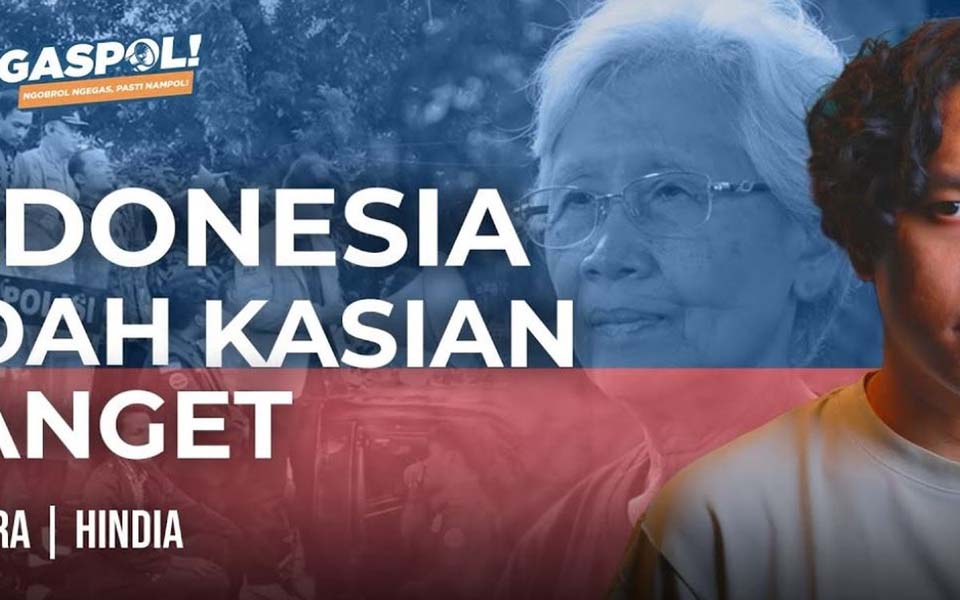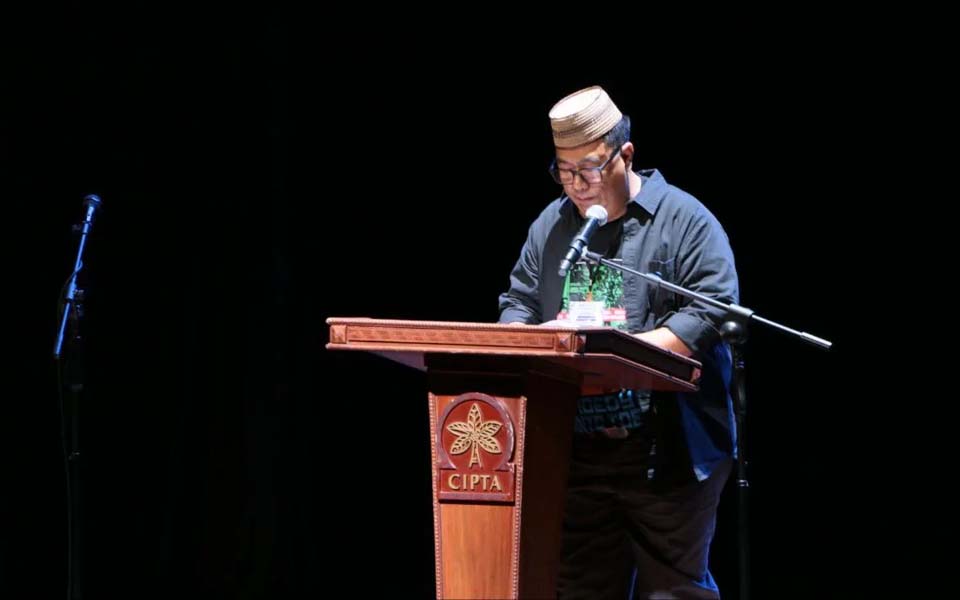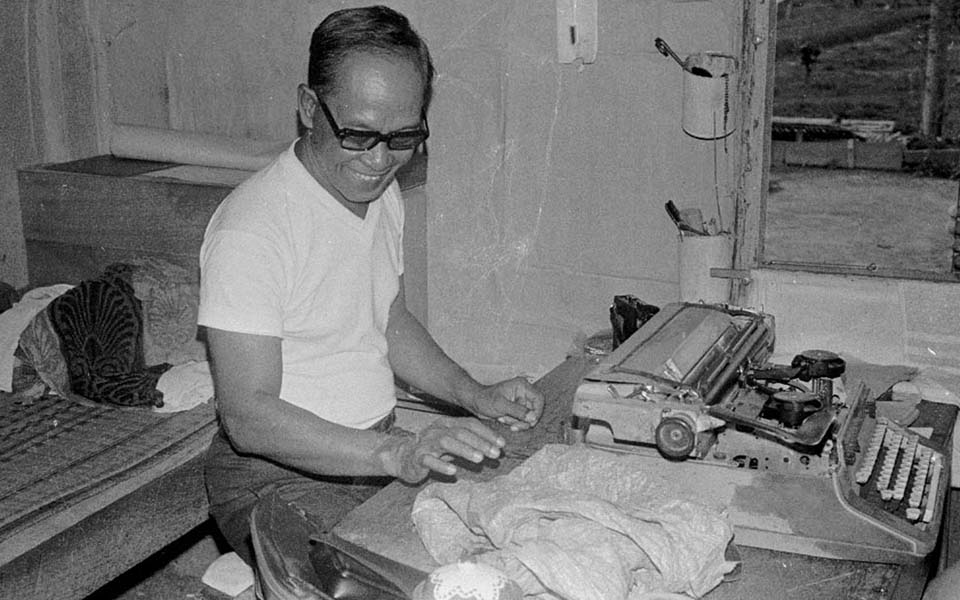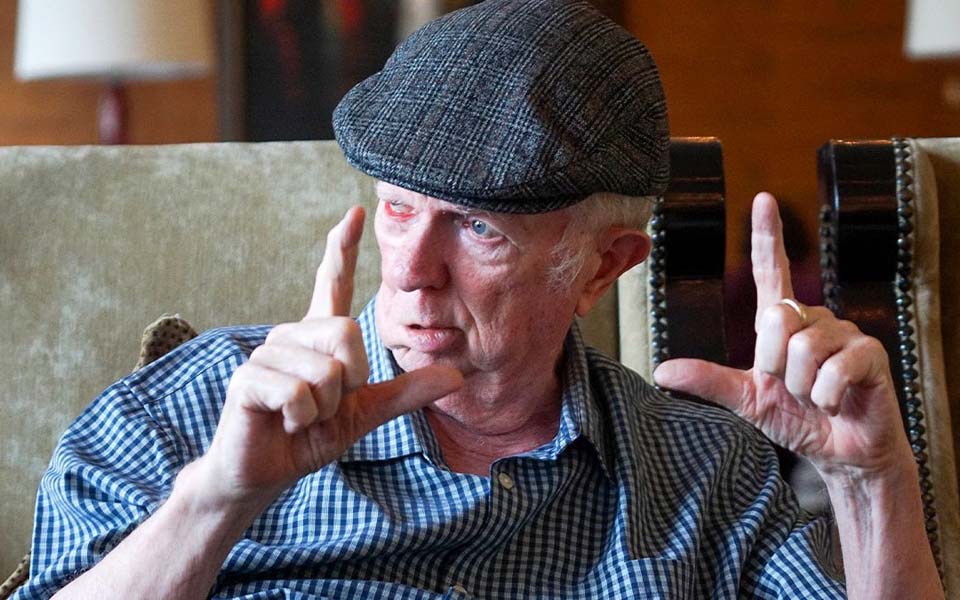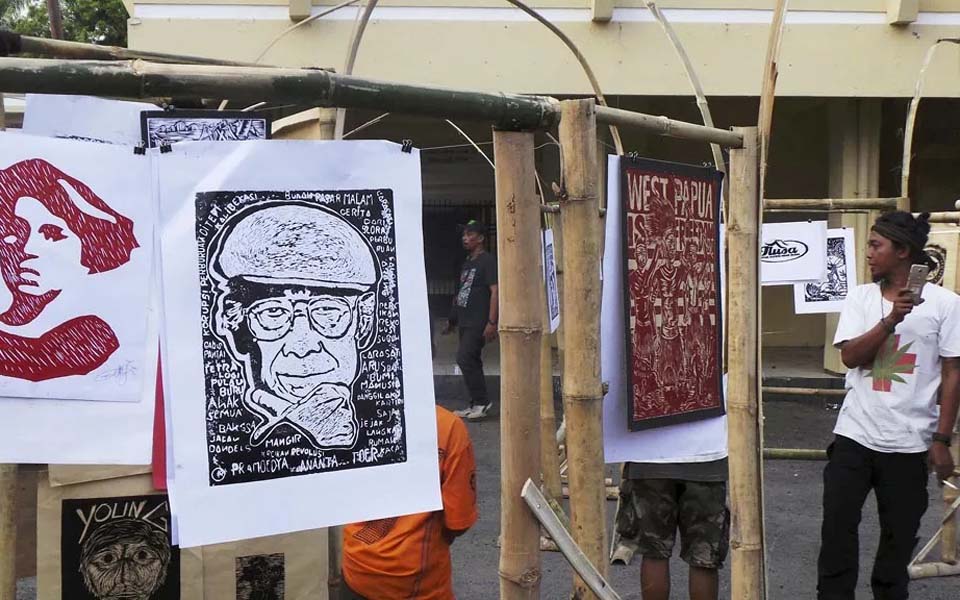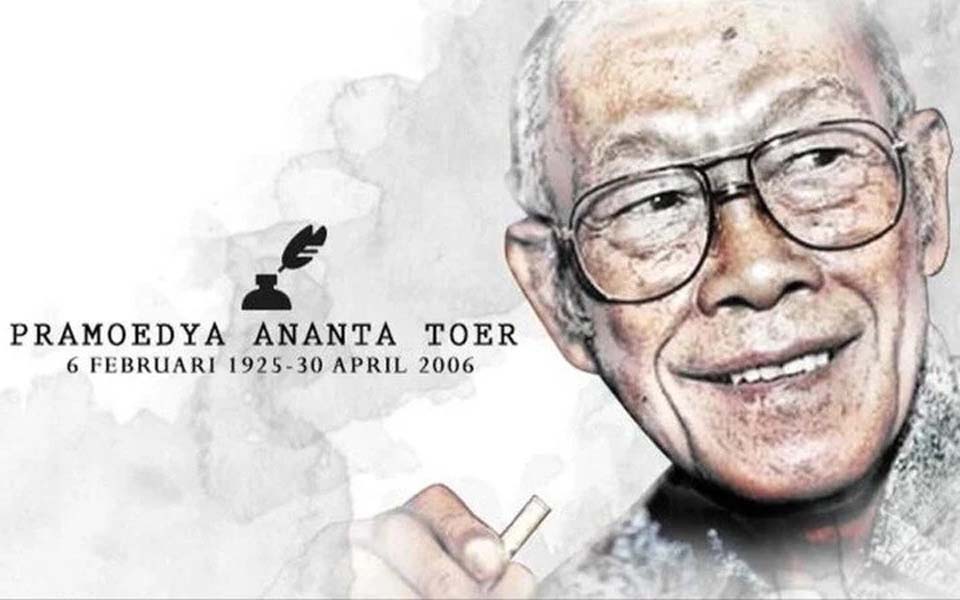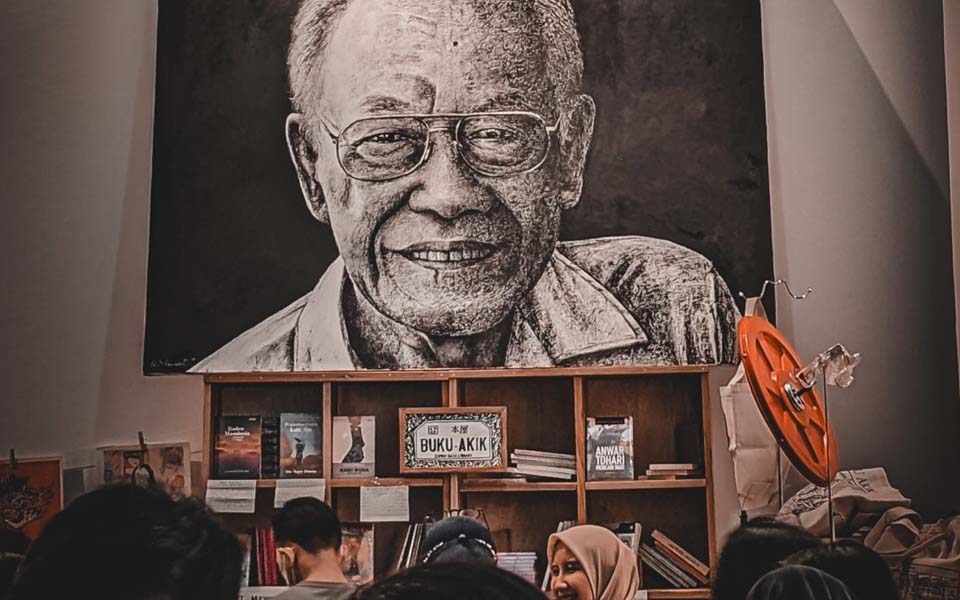Adhitya Himawan and Nikolaus Tolen – Max Lane, the author of the new book Indonesia is not Present on this Earth of Mankind (Indonesia Tidak Hadir di Bumi Indonesia) has criticised Indonesians for being unable to envisage a future for their own country.
This he said is because almost all Indonesians are unable to answer when asked what Indonesia will be like in 50 years time.
“People in the past, they fought and sacrificed with great difficulty to achieve independence, but after independence what next?”, asked Max during a launch of his new book at the Galeri Cipta III Gallery in the Taman Ismail Marzuki cultural centre in Cikini, Central Jakarta, on Saturday August 12.
This however is not unique to Indonesia and according to the author of the book about the works of Indonesia’s foremost author Pramoedya Ananta Toer, it is also the case in Australia.
“I worry at the moment, when I ask my students in Australia, if in 50 years, what do you want Australia to be like? On average they can’t answer”, said Max.
Max said that this is of course very dangerous for the future of the country. Because, what people seem to expect for the future at the moment is for things just to continue as they are until doomsday.
“And unfortunately, if society goes on like this, continues like this, doomsday will arrive much sooner”, said Max.
Because of this therefore he is reminding Indonesians never to forget the period when former president Suharto was in power. Because, although Indonesia has been independent since 1945, there are in fact many people who feel that Indonesia has not yet achieved independence.
“We must not for a moment forget how long Suharto was in power. If someone studies history, they will of course answer 32 years, that’s true. But my explanation is not like that. What year did the Dutch leave Indonesia?”, asked Max.
Published by Djaman Baroe, Yogyakarta, Max Lane’s book Indonesia is not Present on this Earth of Mankind is based on essays about the works of Pramoedya. It represents the result of the author’s interactions with Pramoedya and contemplations of his works, as well the other two founders of the Hasta Mitra publishing house, Joesoef Isak and Hasyim Rachman.
Progressive publisher Hasta Mitra was first publisher with the courage to publish Pramoedya’s works during the Suharto era. Max Lane meanwhile was the first person to introduce Pram’s works to the world, also during the period of Suharto’s repressive regime.
Max’s English translation of the Buru Quartet (This Earth of Mankind, Child of All Nations, Footsteps and House of Glass) was published by Penguin books in Australia, the United Kingdom and the US. As a consequence of his work translating Pram’s books, Max, who at the time worked as junior diplomat with the Australian Embassy in Indonesia, was forced to return to Australia in 1981.
Other books by Pram and translated by Max include Arok of Java (Arok Dedes) and The Chinese in Indonesia (Hoakiau di Indonesia).
By wrestling for years through the process of translating Pramoedya’s works and his interactions and many discussions with Pramoedya as well as many other activities in Indonesia, Max sets out and provides an analysis that he presents in this collection of essays.
Indonesia is not Present attempts to provide a general picture of Pramoedya’s works, analysing Pramoedya’s ideas about the Indonesian archipelago’s history, Indonesia’s origins as a nation and about the relationship between caste and class. Among the works discussed is Chinese in Indonesia, Arok of Java and This Earth of Mankind.
According to Max there was a hidden message from Pramoedya for his readers about what they must be conscious of in confronting Indonesia’s future.
[Translated by James Balowski. The original title of the article was Max Lane: Setelah Indonesia Merdeka, Mau Apa?]
Source: http://www.suara.com/news/2017/08/13/064525/max-lane-setelah-indonesia-merdeka-mau-apa.






